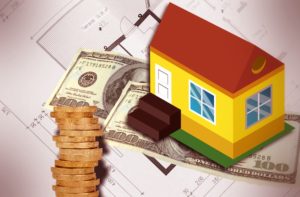 Consumer uncertainty on the growth of home prices is on the rise according to the latest Survey of Consumer Expectations (SCE) by the Federal Reserve Bank of New York. The survey found that while median home price change expectations remained flat at 3.7 percent in May, uncertainty over home price growth rose to its highest level since May 2017. Despite being stable for the month, home price change expectations were also well above their 12-month average of 3.3 percent.
Consumer uncertainty on the growth of home prices is on the rise according to the latest Survey of Consumer Expectations (SCE) by the Federal Reserve Bank of New York. The survey found that while median home price change expectations remained flat at 3.7 percent in May, uncertainty over home price growth rose to its highest level since May 2017. Despite being stable for the month, home price change expectations were also well above their 12-month average of 3.3 percent.
The monthly SCE survey contains information about how consumers expect overall inflation and prices for food, gas, housing, and education to behave while providing insights into Americans’ views about job prospects and earnings growth and their expectations about future spending and access to credit.
In May, the SCE found that the perceived change in credit availability had improved over a year ago with the proportion of respondents reporting easier credit access increasing to 23.9 percent in May from 22.1 percent during the same period last year. However, consumers expected credit availability to worsen in the second half of 2018, with the “proportion expecting tightening credit access increasing slightly from 29.1 percent last year to 30.4 percent,” the survey indicated.
Consumers also expected a change in tax structure with the median expectation on this indicator for the year ahead rising to 2.2 percent, “its third consecutive increase since reaching a series low of 1.5 percent in February 2018.”
Income growth isn’t something that consumers are expecting either, during the year. The survey found that consumer expectation on median one-year-ahead earnings growth slipped on a month-over-month basis from 2.7 percent in April to 2.5 percent in May, 2018.
Consumer negativity on income growth was also reflected in the expectation of their ability to pay. The SCE indicated that the average perceived probability of consumers missing a minimum debt payment over the next three months increased slightly from 11 percent in April to 11.7 percent in May.
The year-ahead expectation on the situation of household finances also worsened according to the SCE, which found that 13.7 percent consumers expected to be worse off financially compared with 11.8 percent who felt that way in April.

 theMReport.com Your trusted source for mortgage banking news
theMReport.com Your trusted source for mortgage banking news








